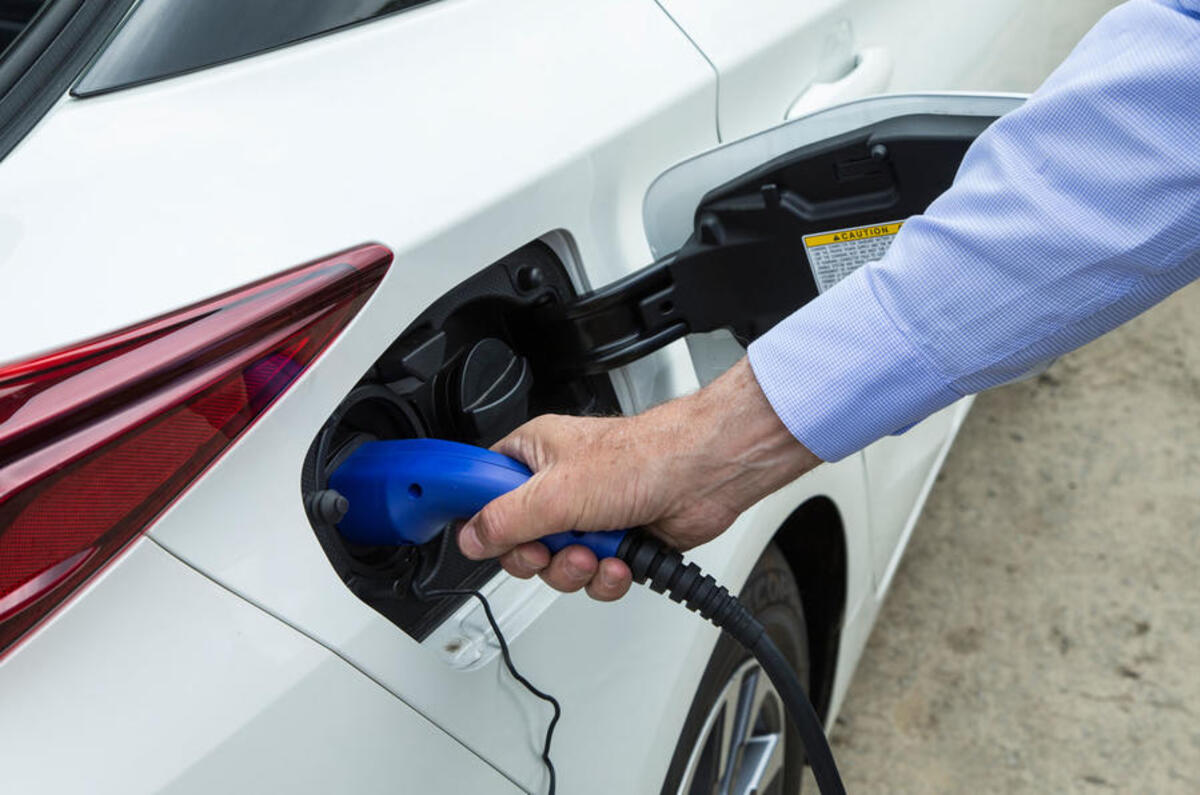Barely a month goes by where there isn't blame being thrown at motorists for causing pollution problems in our towns and cities. The UK is also likely to miss its next CO2 reduction targets. So why has the government just scrapped the plug-in car grant for the majority of plug-in vehicles sold?
From the middle of next month, the current subsidy programme for electrified vehicles will be overhauled completely. No plug-in hybrid on sale will be eligible for a list price discount – previously £2500 (and before 2016 £5000) – while even the subsidy for full EVs will be cut by £1000.
The changes come just as electrified vehicles are gaining a foothold in the market, and a small one at that. Up until September this year, PHEVs and EVs made up just 2.5% of all new cars sold in Britain. Yet the government claims the plug-in market is now "more established", and grants are not needed to support it.
That just doesn't add up, especially when consumers are supposed to be persuaded (rightly or wrongly) out of diesel cars.
Compare the UK's situation with Norway - an exception but one that proves the success of incentives. Over half of all new cars registered there last year were plug-in hybrids or BEVs, and two of the bestselling cars are fully electric.
That's unsurprising, because EVs are exempt from VAT, import and purchase taxes, can use many bus lanes, and even pay half-price fares for ferries. Granted, Norway has a massive sovereign wealth fund to make that sustainable – and generates most of its own electricity from hydroelectric plants – but it seems counterproductive for the UK to scrap its relatively modest grant so early on in the electric revolution.
The other side of the argument is that, regardless of incentives, car makers will be forced to sell electrified models in greater numbers in order to meet their fleet average CO2 targets. And it's likely that more advanced PHEVs in future will be eligible for the updated grant, with cars with more than 70 miles of zero-emission range eligible for the discount. But in the short term, the UK's EV revolution is in real danger of being stifled.




Join the debate
Add your comment
They have probably...
exchanged the subsidy for the infrastructural costs of upgrading the mains which are going to be astronomical both in practical and technical terms.
Never understood why tax
Never understood why tax payers should subsidise new car purchases for the wealthy.
I for one am glad
why should the taxpayer fund peoples choice of vehicle, if you want an EV badly enough, you will buy one, look at the list prices of Tesla, far better cheaper petrol or diesel engined vehicles are available but it doesnt stop people buying them, they buy them because they want an EV, not because of the taypayer grant.